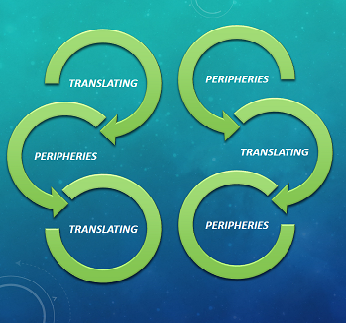Carrière, Marie. Médée protéiforme. Ottawa : Les Presses de l’Université d’Ottawa, 2012.
DOI:
https://doi.org/10.21992/T9V336Keywords:
Écriture féminine, mythocritique, littérature, Médée, Marie CarrièreAbstract
Médée, figure féminine incontournable de la mythologie grecque, mère coupable de fratricide et d’infanticide, a longtemps fasciné lecteurs, écrivains et chercheurs. Si le personnage de Médée constitue par son acte un être unique dans la mythologie, force est de constater que l’infanticide est un sujet prisé de la littérature féminine actuelle. Comparatiste de formation, Marie Carrière, professeure de littérature à l’Université de l’Alberta où elle dirige également le Centre de littérature canadienne (CLC), propose à ce titre de se pencher sur huit œuvres : La Médée d’Euripide (1986) de Marie Cardinal, Flowers & No More Medea (1994) de Deborah Porter, Médée, Récits de femmes et autres histoires (1986) de Franca Ramee et Dario Fo, The Hungry Woman : A Mexican Medea (2001) de Cherrie Moraga, New Medea (1974) de Monique Bosco, Médée : voix (2004) de Christa Wolf, Petroleum (2004) de Bessora et Le livre d’Emma (2002) de Marie-Célie Agnant). Ces œuvres, aussi différentes soient-elles par leur contexte, revisitent, à travers des procédés d’écriture et de réécriture variés, le mythe de Médée (l’infanticide apparaissant comme source de différend) et façonnent de manière ou d’autre, le discours féministe actuel.Downloads
Downloads
Published
Issue
Section
License
Authors who publish with this journal agree to the following terms: a.Authors retain copyright and grant the journal right of first publication with the work simultaneously licensed under a Creative Commons Attribution License that allows others to share the work with an acknowledgement of the work's authorship and initial publication in this journal. b.Authors are able to enter into separate, additional contractual arrangements for the non-exclusive distribution of the journal's published version of the work (e.g., post it to an institutional repository or publish it in a book), with an acknowledgement of its initial publication in this journal. c.Authors are permitted and encouraged to post their work online (e.g., in institutional repositories or on their website) prior to and during the submission process, as it can lead to productive exchanges, as well as earlier and greater citation of published work (See The Effect of Open Access).



